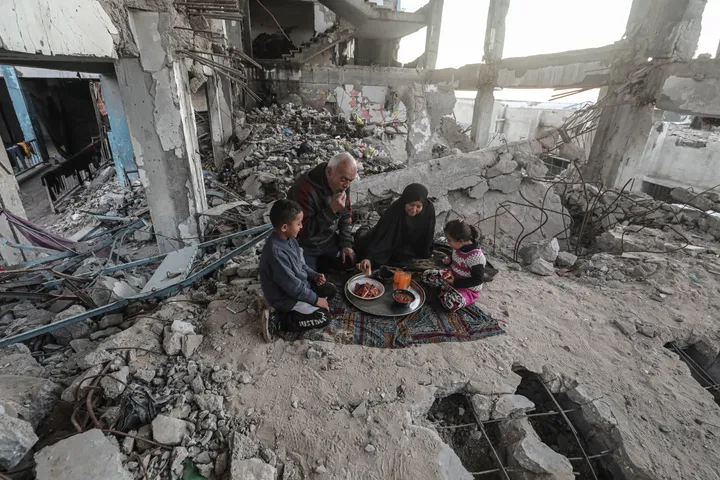Bambie Thug, who is representing Ireland in the 2024 Eurovision Song Contest, gave an interview while wearing a Palestinian scarf, saying her support for Palestine does not imply that she is anti-Semitic.
“It means that I am against war, occupation, oppression, and the killing of innocent civilians and children,” Thug said in an interview with Newstalk on Thursday while wearing a keffiyeh around her neck and carrying Irish flags, a clear reference to her protest against Israel's ongoing bombardment of Palestine since October 7 of last year, in which nearly 35,000 people, mostly women and children, have been killed.
The Ireland artist is participating in the Eurovision Song Contest in Malmo, Sweden.
"My heart and prayers are with the people of Palestine," she wrote in an Instagram post.
The singer, who performed in the first semi-final on M ay 7, said the European Broadcasting Union (EBU) had requested to delete the phrases "Freedom for Palestine" and "Ceasefire" written on her body in the Ogham writing system, an ancient Celtic language, to show her support for Palestine.
The pro-Palestinian artist said she and her team cried when it was announced that Israel had qualified for the final of the competition.
"This is a situation that overshadows everything and goes against everything that Eurovision should be," she said about Israel's participation in the competition.
Censorship from EBU
Thug said she and her team fought the request and eventually convinced EBU officials to keep the "Ceasefire" sign. After a while, she said EBU approached her with a request to delete this writing and wrote in her post, "I learned that they had an internal meeting about an hour before I went on stage, that the expression 'ceasefire' was no longer acceptable and that if I did not remove it, I would not be allowed to perform."
She emphasized her support for justice and peace, and that everyone should have access to shelter, security, food, freedom, and compassion.























